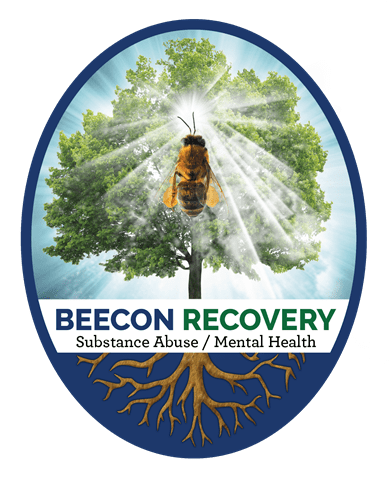A sometimes overlooked and underestimated aspect of addiction recovery is nutrition. The impact of nutrition on mental health is a pivotal role, as it directly influences brain function and neurotransmitter production. During addiction recovery, individuals often experience nutritional deficiencies due to poor dietary habits, substance abuse-related malnutrition, and digestive issues. By prioritizing nutrition, individuals can optimize their brain health, stabilize mood fluctuations, and enhance their ability to cope with cravings and stressors.
Impact of Nutrition on Mental Health and Physical Health
There are several aspects of the impact of nutrition on mental health that contribute to overall wellness and health. Some of the most important things to consider adding to a diet include protein, fatty acids, carbohydrates, and micronutrients. Let’s take a more detailed look at each of these and why they are important:
Balanced Diet
Consuming a balanced diet rich in essential nutrients, vitamins, and minerals is paramount for overall health and well-being. These vital nutrients support proper bodily functions, including brain health, immune function, and energy levels. A balanced diet provides the necessary fuel for the body to function optimally, aids in the regulation of mood and emotions, and promotes physical recovery. By prioritizing nutrient-dense foods, individuals can support their mental and physical health, enhance their resilience in the face of challenges, and optimize their potential for long-term wellness and vitality.
Hydration
Adequate hydration is essential for optimal cognitive function and mood regulation. Proper hydration ensures that the brain receives adequate blood flow and oxygen, enhancing cognitive abilities such as focus, memory, and decision-making. Additionally, staying hydrated helps regulate neurotransmitter production, which influences mood and emotional stability. By maintaining hydration levels, individuals can support their mental clarity, emotional well-being, and overall cognitive function.
Protein-Rich Foods
Protein plays a crucial role in stabilizing blood sugar levels and promoting neurotransmitter production. It slows down the absorption of carbohydrates, preventing rapid spikes and crashes in blood sugar levels. Protein also provides amino acids that are precursors to neurotransmitters like serotonin and dopamine, which regulate mood and cognition. By including protein-rich foods in the diet, individuals can support stable energy levels, enhance cognitive function, and improve mood.
Omega-3 Fatty Acids
Omega-3 fatty acids, abundant in fish, nuts, and seeds, offer mood-stabilizing benefits. They regulate neurotransmitter activity, including serotonin and dopamine. Omega-3s also reduce inflammation in the brain, potentially alleviating symptoms of depression and anxiety. By incorporating these foods into the diet, individuals can support emotional balance, enhance mental well-being, and reduce the risk of mood disorders.
Complex Carbohydrates
Complex carbohydrates play a vital role in serotonin production and mood regulation. They stimulate the release of insulin, which facilitates the uptake of amino acids into the brain. By consuming complex carbohydrates like whole grains, fruits, and vegetables, individuals can support serotonin synthesis and promote a more balanced and positive mood.
Micronutrients
Micronutrients such as B vitamins, magnesium, and zinc play a crucial role in supporting mental health. B vitamins are involved in neurotransmitter synthesis, while magnesium regulates mood and reduces stress. Zinc is also essential for neurotransmitter function and mood regulation. Including a variety of nutrient-rich foods in the diet ensures optimal micronutrient intake for mental wellness.

Nutritional Challenges in Addiction Recovery
During addiction recovery, individuals often face common nutritional challenges that can hinder their progress towards physical and mental well-being. These challenges include:
- Poor Appetite: Substance abuse can disrupt normal appetite signals, leading to reduced hunger and poor food intake. This can result in nutrient deficiencies and energy depletion.
- Cravings: Cravings for drugs or alcohol can lead to unhealthy eating habits, such as binge eating or consuming processed and high-calorie foods to satisfy cravings.
- Digestive Issues: Substance abuse can damage the gastrointestinal tract, leading to digestive problems such as nausea, vomiting, diarrhea, or constipation. These issues can further impact nutrient absorption and overall gut health.
Tips to Overcome Nutritional Setbacks
To overcome these challenges and ensure adequate nutrient intake during addiction recovery, several strategies can be implemented:
Establish Regular Meal Times: Create a structured eating schedule with regular meal times to help regulate appetite and promote consistent food intake.
Focus on Nutrient-Dense Foods: Prioritize whole foods rich in essential nutrients, vitamins, and minerals. Include a variety of fruits, vegetables, lean proteins, whole grains, and healthy fats in the diet to support overall health and recovery.
Stay Hydrated: Drink plenty of water throughout the day to stay hydrated and support proper digestion and nutrient absorption.
Seek Professional Guidance: Consult with a registered dietitian or nutritionist who specializes in addiction recovery to develop a personalized nutrition plan tailored to your individual needs and preferences.
Manage Cravings with Healthy Alternatives: Instead of turning to drugs or alcohol, find healthy alternatives to manage cravings, such as drinking herbal teas, chewing sugar-free gum, or snacking on fruits and vegetables.
Address Digestive Issues: Work with a healthcare professional to address any digestive issues or gastrointestinal discomfort. Incorporate gut-friendly foods such as probiotics, fiber-rich foods, and fermented foods to promote digestive health.
Practice Mindful Eating: Pay attention to hunger and fullness cues, and practice mindful eating techniques to foster a healthier relationship with food and promote mindful decision-making around eating habits.
Knowing the impact of nutrition on mental health and addiction recovery can assist individuals in their journey of sobriety. By implementing these strategies and addressing nutritional challenges during addiction recovery, individuals can support their physical and mental health, enhance their overall well-being, and improve their chances of long-term sobriety and recovery.

Choose Beecon Recovery
Overcoming addiction presents many challenges and is one of life’s toughest trials. That is why at Beecon Recovery, we extend a helping hand to those striving to break free from addiction. Our variety of services, from group therapy to ketamine treatment and live blood cell analysis, are tailored to support individuals on their path to recovery. Take the first step towards transforming your life by reaching out to us today.






